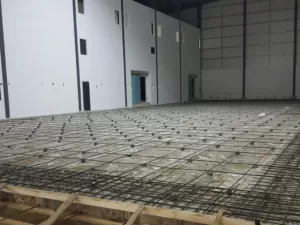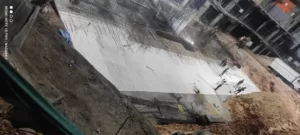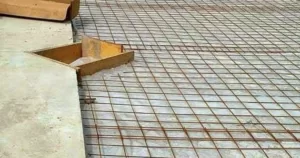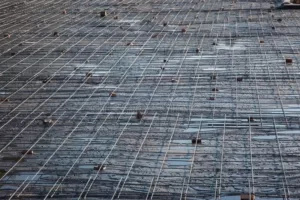

1.Grade Slab Waterproofing – importance
Grade slab waterproofing is an essential component of a building’s waterproofing system, as it helps prevent water from seeping into the foundation and causing damage. The grade slab is the layer of concrete that is poured over the soil and acts as a barrier between the soil and the foundation of the building. Here are some of the reasons why grade slab waterproofing is important:
- Prevents water infiltration: The primary function of grade slab waterproofing is to prevent water from infiltrating the foundation. Without proper waterproofing, water can seep through the concrete and into the building, causing damage to the structure and creating a damp and moldy environment.
- Protects against soil gases: In addition to preventing water infiltration, grade slab waterproofing can also protect against soil gases, such as radon and methane, which can be harmful to human health. A waterproofing membrane or coating can help prevent these gases from seeping into the building.
- Enhances durability: Waterproofing the grade slab can also enhance the durability of the building by protecting the foundation from damage caused by water and soil. Over time, exposure to moisture and soil can weaken the foundation and cause cracks and other damage, which can compromise the stability of the building.
- Reduces maintenance costs: By preventing water infiltration and protecting against soil gases, grade slab waterproofing can help reduce maintenance costs associated with water damage and soil remediation. This can help save money over the long term by avoiding costly repairs and replacements.
2. available systems for Grade Slab Waterproofing
There are several systems available for grade slab waterproofing, including:
- Sheet membrane waterproofing: This system involves installing a waterproof membrane over the grade slab. The membrane can be made of various materials such as SBS, APP, PVC, TPO, or EPDM.
- Liquid membrane waterproofing: This system involves applying a liquid waterproofing material directly onto the grade slab surface. The liquid material can be made of various materials such as polyurethane, Rubber or acrylic.
- Bentonite clay waterproofing: This system involves installing a layer of bentonite clay over the grade slab. When the clay gets wet, it swells to form a waterproof barrier.
- Cementitious waterproofing: This system involves applying a cement-based waterproofing material onto the grade slab. The material can be mixed with additives to enhance its waterproofing properties.
- Crystalline waterproofing: This system involves applying a crystalline waterproofing material onto the grade slab surface. When the material comes into contact with water, it forms crystals that block the pores and create a waterproof barrier.
The choice of system will depend on various factors such as the site conditions, the level of protection required, and the budget. It is recommended to consult with a professional waterproofing contractor to determine the most suitable system for a particular project.






3. selection of Grade Slab Waterproofing system
The selection of a grade slab waterproofing system depends on several factors, including the site conditions, the level of protection required, and the budget. Here are some things to consider when selecting a grade slab waterproofing system:
- Site conditions: The site conditions, including the climate, soil type, and water table, can affect the selection of a grade slab waterproofing system. For example, if the water table is high, a system that provides a high level of protection against water ingress may be required.
- Level of protection required: The level of protection required will depend on the intended use of the structure. For example, a basement that will be used as living space will require a higher level of protection than a basement that will be used for storage.
- Budget: The budget will also play a role in the selection of a grade slab waterproofing system. Some systems are more expensive than others, and the cost will depend on factors such as the materials used, the complexity of the installation, and the size of the area to be waterproofed.
- Compatibility with other systems: It is important to ensure that the selected waterproofing system is compatible with other systems used in the structure, such as the foundation and drainage systems.
- Maintenance requirements: Some waterproofing systems require more maintenance than others. It is important to consider the long-term maintenance requirements when selecting a system.
It is recommended to consult with a professional waterproofing contractor to determine the most suitable system for a particular project based on the above factors.
GEOLIZ WATERPROOFERS PVT. LTD.
Waterproofing Products & Services Guide
For details on other waterproofing products & Services
